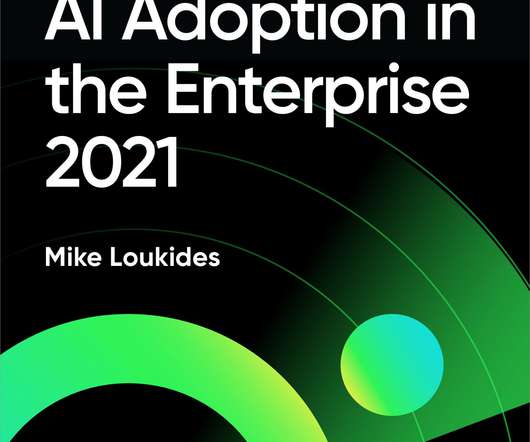Interview with: Sankar Narayanan, Chief Practice Officer at Fractal Analytics
Corinium
JUNE 6, 2019
It is also important to have a strong test and learn culture to encourage rapid experimentation. A playbook for this is to run multiple experiments in parallel and create ‘MVPs’ (fail/learn fast), as well as incorporate feedback mechanisms to enable an improvement loop, and scaling the ones that show the fastest path to ROI.














Let's personalize your content